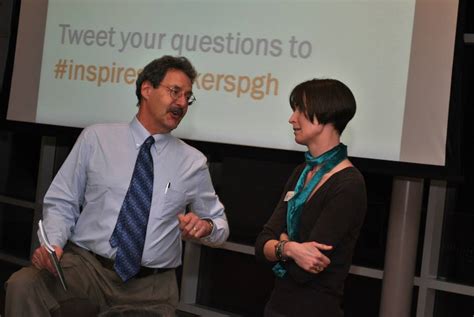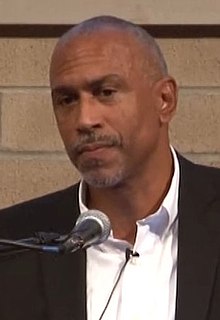Цитата Мадлен М. Кунин
Воспитание детей младшего возраста начинается рано, еще до рождения.
Связанные цитаты
Исследования доказали, что дошкольное образование возвращает обществу целых 12 долларов на каждый вложенный доллар. Наша цель — выявить наиболее важные возможности для развития детей пяти лет и младше, предоставив информацию о том, как превратить дошкольное образование из вопроса социальной политики в экономический императив.
Президент Обама очень озабочен образованием. Он чемпион по стратегиям развития детей младшего возраста. Так что мне нравится работа, которую он делает, и я поддерживаю ее, и я понимаю, что он один из очень немногих политических лидеров во всем мире, который действительно ставит стратегию развития детей младшего возраста на первое место в своей повестке дня.
Если цель состоит в том, чтобы резко улучшить показатели окончания колледжа, а не просто показатели поступления в колледж, а число окончивших колледж, то это проблема не только колледжа. Нам необходимо уделять большое внимание дошкольному образованию. Наша система дошкольного образования в этой стране довольно хороша. Недостаточно студентов имеют возможности. И, что очень обескураживает, они теряют свое преимущество, потому что после этого ходят в плохие школы. Итак, давайте сосредоточимся на наших детях.
В Бирме нам необходимо улучшить образование в стране — не только начальное, но и среднее и высшее образование. Наша система образования очень и очень плоха. Но, конечно, если вы посмотрите на начальное образование, мы должны думать с точки зрения развития детей в раннем возрасте, которое продолжается до рождения ребенка, чтобы убедиться, что мать хорошо питается, а ребенок правильно воспитывается.
Дети, которые посещают высококачественные программы раннего ухода и обучения до детского сада, лучше оценивают навыки чтения и математики, а также социально-эмоциональное развитие. Однако, поскольку программы раннего ухода и образования очень дороги, семьи с низким доходом сталкиваются со значительными препятствиями.
Я подумал: «Ну, я пишу о раннем детстве, так что, может быть, имеет смысл написать и о позднем детстве, ранней взрослой жизни». Таковы были мои мысли, и именно так была составлена эта сумасшедшая книга [Зимний журнал]. Я никогда не видел книги с картинками, как в конце, картинками, связанными с тем, что вы читали раньше.






































